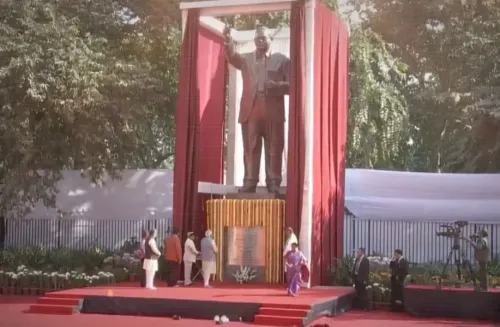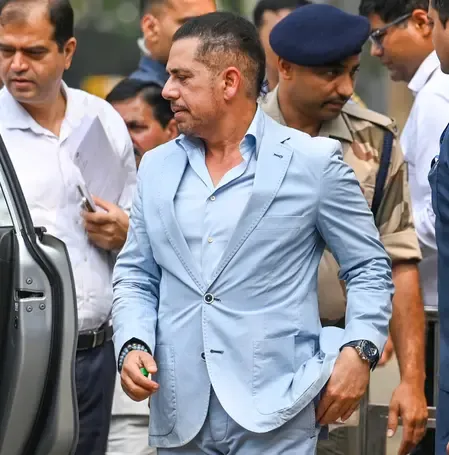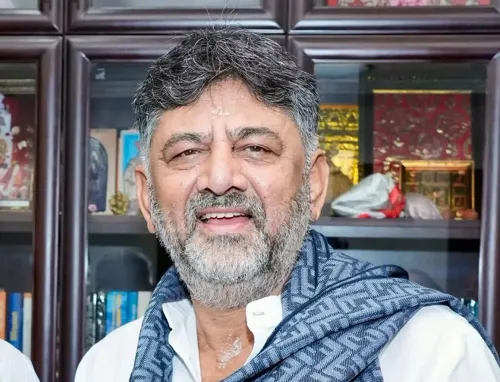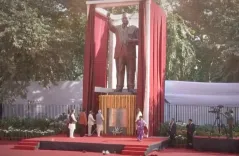Is Aadhaar a Definitive Proof of Citizenship? Supreme Court Weighs In
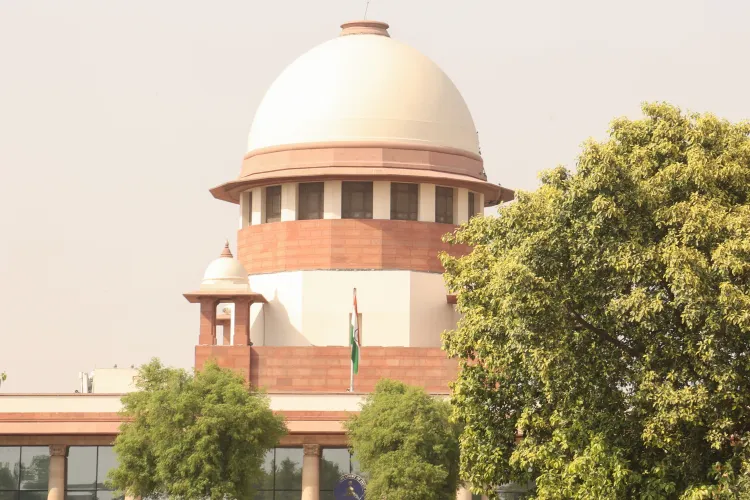
Synopsis
Key Takeaways
- Aadhaar is not definitive proof of citizenship.
- The ECI's role is crucial in managing electoral rolls.
- Verification of citizenship is necessary for inclusion in electoral processes.
- Concerns were raised about disenfranchisement of vulnerable citizens.
- The Supreme Court will continue hearings on this matter.
New Delhi, Aug 12 (NationPress) The Supreme Court stated on Tuesday that the Election Commission of India (ECI) is right in claiming that an Aadhaar card does not serve as conclusive proof of citizenship.
A Bench led by Justices Surya Kant and Joymalya Bagchi emphasized that the responsibility for including or excluding citizens and non-citizens from electoral rolls falls under the jurisdiction of the poll body.
These remarks were made by the Justice Kant-led Bench during the hearing of a series of petitions contesting the Special Intensive Revisions (SIR) of electoral rolls in the election-bound state of Bihar.
“The ECI's assertion that Aadhaar cannot be taken as definitive proof of citizenship is correct. Verification is necessary,” the court noted.
During the proceedings, senior advocate Kapil Sibal, representing the petitioners, expressed concerns that the SIR process could disproportionately affect vulnerable citizens, particularly those unable to provide necessary documentation.
Sibal highlighted that many of the required documents are not accessible to residents of Bihar. “People in Bihar lack these documents, that's the crux,” he stated.
In response, the Justice Kant-led Bench remarked, “It's a sweeping claim to say that no one in Bihar possesses these documents. Don’t people have Aadhaar or ration cards? Some form of identification is required to prove Indian citizenship. Everyone has some certificate—it's essential even for purchasing a SIM card.”
The court also noted that the Aadhaar Act explicitly states that an Aadhaar number does not confirm citizenship, aligning with the ECI's position.
Alongside Kapil Sibal, a team of lawyers, including senior advocates Abhishek Manu Singhvi, Gopal Sankaranarayanan, Prashant Bhushan, and Vrinda Grover, presented their arguments.
The Supreme Court plans to continue hearing the case on Wednesday.
In a recent affidavit, the ECI opposed the Association for Democratic Reforms (ADR)’s request to reveal constituency and booth-wise details of approximately 65 lakh electors whose enumeration forms were not submitted.
The poll body argued that the legal framework under the Representation of the People Act, 1950, and the Registration of Electors Rules, 1960, does not require the creation or publication of such a list.
The ADR’s application sought two directives: first, to publish a constituency and booth-wise list of omitted electors with reasons such as death, permanent migration, duplication, or being untraceable; and second, to release the names of electors whose enumeration forms were deemed “not recommended” by the Booth Level Officers (BLOs).


